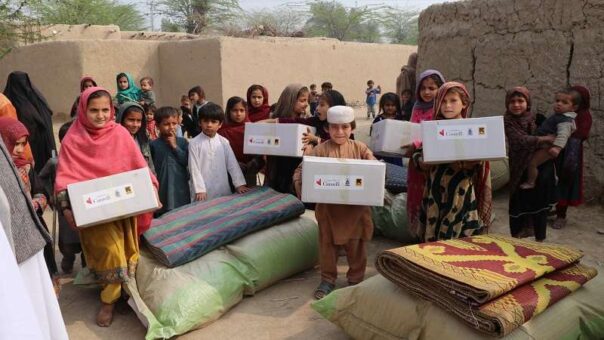ISLAMABAD: The International Rescue Committee (IRC) is emphasizing the importance of implementing comprehensive rehabilitation programs that cater to the long-term needs of communities affected by the 2022 floods.
The rehabilitation process is still ongoing, and the IRC believes that neglecting crucial areas such as nutrition and food security, health, shelter, education, and WASH could lead to severe and lasting repercussions for both the flood-affected population and Pakistan as a whole.
From the start of the floods in July 2022, the IRC has continued to operate in the districts of Balochistan, Khyber Pakhtunkhwa, Punjab, and Sindh provinces, which have been affected by the disaster. By distributing food baskets, non-food items, safe drinking water, dignity and hygiene kits, as well as winterization kits, setting up medical camps and safe spaces, and providing training on life skills and psychosocial support, the IRC has been able to reach out to around 1,224,938 individuals.
The Country Director of IRC, Shabnam Baloch, stated in a press release, “Pakistan has faced floods before, but the scale of the damage caused by the 2022 floods is unlike anything we’ve seen before. Even now, over seven months after the disaster, millions of people, including women and children, are still grappling with food scarcity and lack of shelter.
“The majority of affected areas are still grappling with significant disruptions in healthcare, education, and social protection services, posing a serious threat to the lives, livelihoods, and futures of millions of people.”
After the floods triggered by climate change ravaged three-fourths of Pakistan, approximately 4.5 million individuals are still exposed to extreme conditions months later. As of February 2023, floodwaters had not receded from several districts in the southern part of the country. While some people have returned to their homes, they are greeted with harsh living conditions that are far from hospitable.
Despite several donor organizations stepping up to support Pakistan during this time of crisis, the response from the international community as a whole has been lackluster. As of February 2023, Pakistan had only received 36% of the $871 million in international aid meant to address the overall challenge posed by the floods.
“Every sector of Pakistan’s flood response plan is currently facing a funding shortage,” added Ms. Shabnam. While this presents a significant challenge, it’s important to understand that mere financial resources won’t be enough to pull Pakistan out of the climate-induced crisis it’s facing. “There is an urgent need to invest in climate-resilient interventions that take into account the magnitude of the threat that climate change poses to a developing country like Pakistan.”
The Gates Foundation, Foreign, Commonwealth and Development Office (FCDO), European Civil Protection and Humanitarian Aid Operations (ECHO), Swedish International Development Cooperation Agency (SIDA), Dutch Relief Alliance (DRA), Disasters Emergency Committee (DEC), Irish Aid, Malala Fund, UNICEF, IOM, Global Affairs Canada, and German Federal Foreign Office (GFFO) are among the important donors whose support was crucial for the IRC to initiate and maintain relief efforts in the districts affected by the floods.
